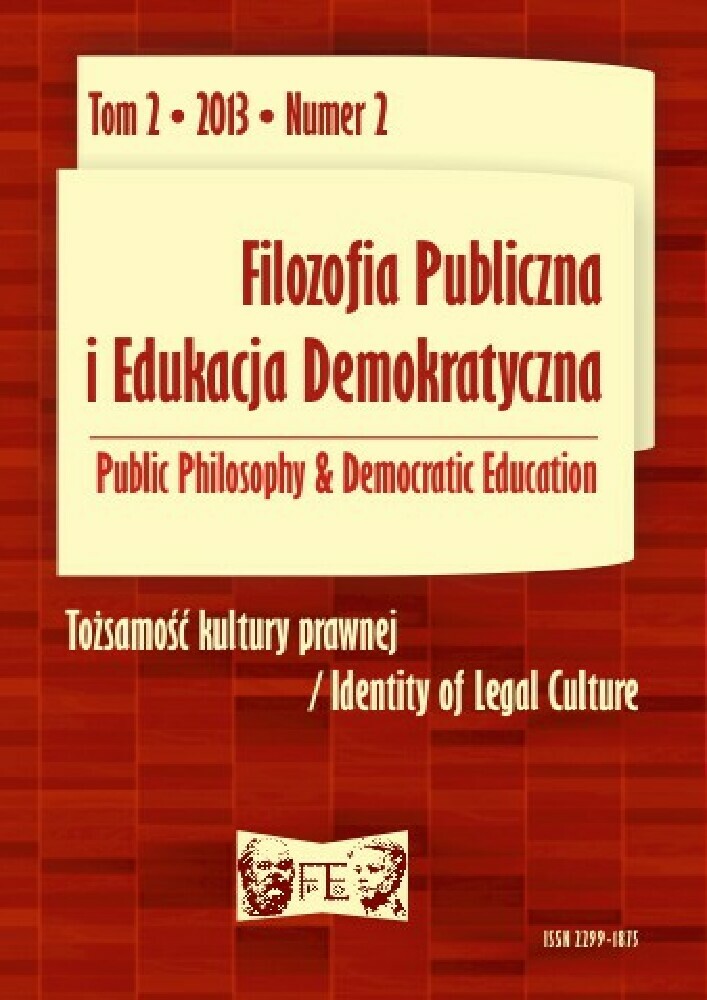Abstract
The idea of human rights has interesting history and even more interesting, if dim, future. The paper examines the main conceptual problems involved in the human rights-talk, its origin (in particular Ockham’s thought), evolution and critique (including Bentham’s argument commonly known as “nonsense upon stilts”, Marx’s attempt to demistify superficiality of the formal guarantees of freedom as well as Burke’s warnings against purportedly universal and abstract truth of such artificial ideological inventions). The main concern for the future of the idea of human rights seem to relate, however, to gradual naturalisation of the image of human being and human life. Therefore, it is less and less clear why any rights may be reasonably founded on brute fact of membership in a given biological species. As a result, it becomes more and more doubtful why human rights are to conceived as inherently (conceptually) solely human privilege. Nowadays, this question emerges as the most important challenge for the idea of human rights in the XXI century.
License
Copyright (c) Authors retain copyright and publishing rights to their articles in this journal, granting the journal the right to distribute them under the terms of the CC BY-NC-ND 4.0
